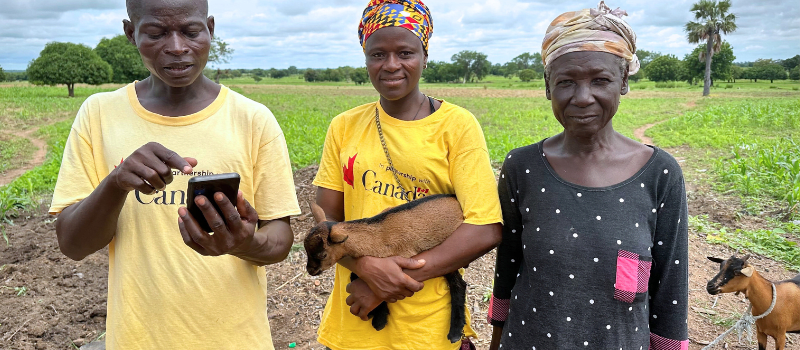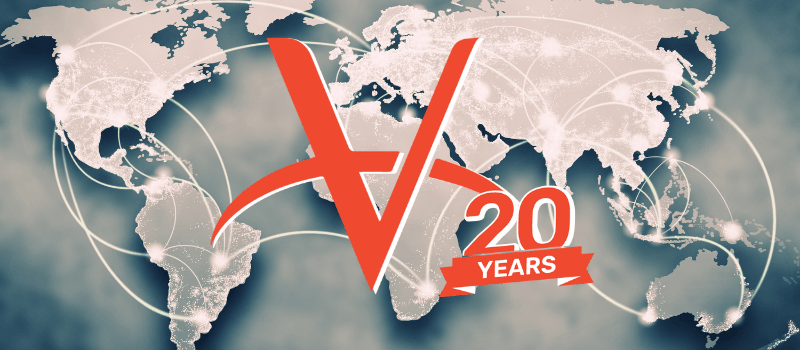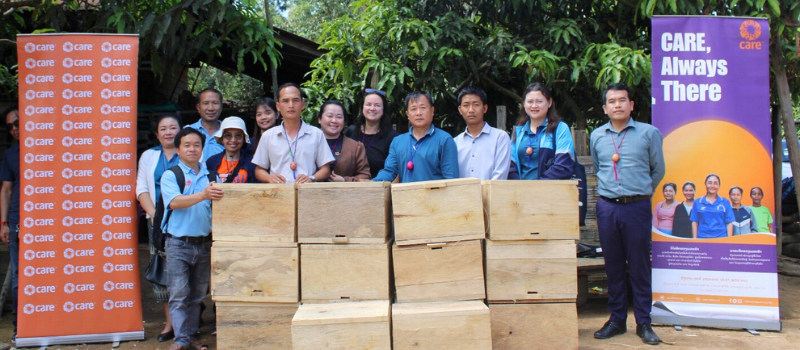From March 2023 through March 2024, we implemented the "Building Livelihood Resilience for Income Security and Dignified Life" project in Torit County, Eastern Equatoria, South Sudan with generous support by the Zoetis Foundation. This report provides an overview of the significant achievements and impact realized in livestock productivity, farmer resilience, and sustainable livelihoods.
I. Context

In the heart of South Sudan, where livelihoods are intricately interwoven with the well-being of livestock, the challenges of food insecurity are imminent. Against a backdrop of recurrent climate-related disruptions, economic instability, and zoonotic disease outbreaks, the need for holistic interventions becomes imperative. This is the context in which Veterinarians without Borders/Vétérinaires sans frontières (VWB/VSF) – supported by Zoetis Foundation – ventured into Torit County, Eastern Equatoria State in March 2023, with a mission to nurture resilient communities and livelihoods.
South Sudan, the world's youngest nation, has been grappling with the aftermath of protracted conflict and political instability since gaining independence in 2011. The consequences of these challenges are particularly pronounced in rural areas, where communities rely heavily on agriculture and livestock rearing for their sustenance. Torit County, situated in the verdant plains of Eastern Equatoria State, exemplifies this reality, with livestock playing a central role in the socio-economic fabric of the region. With a population predominantly engaged in subsistence farming and livestock herding, the resilience of Torit County communities hinges on the health and productivity of their animals.
However, the stark reality is that an estimated 5.78 million people (46% of the population) of South Sudan face crisis levels of food insecurity. These figures, outlined in the latest IPC report, underscore the severity of the situation, which is exacerbated by extended droughts causing crop failures and inadequate pasture for livestock. In regions like Eastern Equatoria, with frequent outbreaks of diseases such as Newcastle Disease and Foot-and-Mouth Disease, limited access to veterinary services and inadequate infrastructure further diminish animal health, farmer resilience and sustainable livelihoods.

II. Activities & Achievements
The one-year project – “Building Livelihood Resilience for Income Security and Dignified Life” – which ran from March 2023 to March 2024, began with a commitment to grassroots empowerment. The objectives were threefold:
1. To enhance farmer’s access to community-based livestock extension services.
2. To increase farmer’s livestock production and productivity.
3. To increase capacity of communities to prevent the transmission of zoonotic diseases.
Specifically, to enhance farmer’s access to livestock extension services, 10 Community Animal Health Workers (CAHWs) and 2 Veterinary Doctors (VDs) were carefully selected. These frontline animal health workers underwent a rigorous curriculum on topics ranging from animal husbandry to disease surveillance, equipping them not only with technical expertise but also with a deep understanding of the socio-economic dynamics shaping their communities. The CAHWs were also provided with comprehensive veterinary kits to support them in providing effective animal health services within their communities.
From conducting vaccination campaigns to providing guidance on improved animal health, housing, and feeding, the CAHWs and VDs delivered essential animal extension services to remote villages. They also provided the interpersonal and technical skills necessary to advise their communities on livestock disease control through treatment services.
In parallel with capacity-building efforts, several important activities were undertaken throughout 2023 to improve farmer’s livestock production:
- 1,600 chickens and 600 goats were distributed to 550 households (i.e., 3,300 individuals).
- 550 smallholder farmers were trained on climate-smart animal feeding and keeping practices.
- 110 climate-smart chicken sheds were constructed in collaboration with the South Sudan Relief and Rehabilitation Commission.
- 12,842 livestock were vaccinated in partnership with the Ministry of Animal Resources and Fisheries using FAO-supplied vaccines.
- 2 radio talk shows were hosted to provide market linkages between farmers and milk/meat buyers.
Additionally, several project activities ensured communities learned how to prevent the transmission of zoonotic diseases:
- 2,628 households were reached by 6 awareness and information campaigns on the prevention of zoonotic disease including symptoms in both livestock and humans, transmission pathways, and control measures.
- 25 participants (including CAHWs, community health workers, and local government officials) attended a 2-day training on animal-human health, zoonoses prevention, disease monitoring, and behavioural change at the household level to minimize risks.
- 20 risk assessments were conducted in response to emerging health threats within communities.
- Farmers and community members were educated on the safe disposal of carcasses, emphasizing the health risks associated with improper disposal and handling.
 PHOTO: Farmer recipient of chicken distribution.
PHOTO: Farmer recipient of chicken distribution.
 PHOTO: Climate-smart chicken shed.
PHOTO: Climate-smart chicken shed.
 PHOTO: Farmer holding his goat's new kids.
PHOTO: Farmer holding his goat's new kids.
 PHOTO: Mass livestock vaccination.
PHOTO: Mass livestock vaccination.
III. Program Impact
(Overall program impact and achievements are presented at-a-glance in the infographic on the right. Click here to download or enlarge it.)
Empowering Access to Livestock Extension Services:
- A remarkable 88% of farmers reported utilizing CAHWs' services in the final three months of the project, marking a significant 35% increase from baseline measures. This indicates a growing reliance on local animal health workers for veterinary services within the community.
- Following initial and refresher training, CAHWs and VDs reported a 56% increase in essential knowledge in zoonoses, vaccinations, and small livestock health management. Capacity building not only enhanced farmer trust in CAHWs and VDs but also bolstered the confidence of animal health workers who previously had limited practical field experience.
Nurturing Livelihoods Through Livestock Resilience:
- Vaccination and restocking initiatives led to significant improvements in food security and economic well-being, with 58.1% of farmers reporting enhanced food security.
- Accessing food through donations decreased by 57.6%, and sourcing food by foraging declined by 49.3%, signaling an increase in self-sufficiency and resilience.
- There was a 33% increase in households transitioning from exclusively crop-based livelihoods to including agro-pastoralism. Such livelihood diversification is crucial for building resilience and reducing dependence on single income sources.
- The number of liters of milk produced by cows per day increased by 23.9%, while the average live weight of mature goats increased by 31.1%.
Strengthening Community Resilience Against Zoonotic Diseases:
- Training sessions and awareness campaigns empowered communities, health workers, and government officials to identify and mitigate risks posed by zoonotic diseases.
- An integrated zoonosis early warning and surveillance system was launched, enabling swift identification and response to outbreaks, and aiding in disease monitoring.
- Strides were made in disease preparedness, with 18% of respondents expressing high readiness and 59% reporting moderate preparedness.

IV. Lessons Learned
Environmental Awareness: The loss of goats due to ingesting non-biodegradable materials highlighted the significant risk that environmental hazards pose to livestock health. Integrating topics on environmental cleanliness in training sessions and conducting public awareness campaigns can mitigate these risks and improve livestock well-being.
Weather Pattern Awareness: Farmers' reliance on natural fodder without considering shifting weather patterns led to challenges when expected rains did not come. Future projects should raise awareness of unpredictable weather patterns and provide support for drought-resistant seeds and community seed banks to mitigate such risks.
Empowerment through Training: Targeted training shifted farmers' perceptions of control over animal health management, empowering them to address challenges more effectively. Continuous learning opportunities are crucial for building farmers' capacity and confidence to manage livestock effectively.
Continuous Education for CAHWs: CAHWs require continuous learning opportunities to ensure they know latest practices in veterinary care and disease management. Refresher training should include both visual aids and practical demonstrations. Additionally, partnering with relevant colleges, agencies and NGOs can enhance content, while incorporating community feedback ensures relevance to local needs.

V. Next Steps
As we embark on the second phase of our South Sudan program in collaboration with the Zoetis Foundation, titled "Strengthening One Health Systems for the Protection of Health and Livelihoods (1-SHOP)", we are committed to build upon the achievements of phase one. From March 2024 through March 2026, 1-SHOP aims to enhance the resilience of pastoralist communities in Torit County against animal diseases, including zoonoses and antimicrobial resistance (AMR).
Specifically, our key objectives are:
1. To increase the use of a One Health approach at the household level to prevent and mitigate the risks linked to zoonotic diseases and AMR.
2. To establish systems at the community level to support the prevention, detection and response to zoonotic diseases and AMR risks.
3. To establish community-based systems that increase livestock productivity and strengthen livelihoods.
By integrating the interconnected elements of human, animal, and environmental health, we aspire to cultivate robust communities capable of withstanding challenges posed by social, political, and environmental factors. Together with Zoetis Foundation, we envision a future where communities not only endure but thrive amidst adversity.
If you would like to help care for livestock and enhance the livelihoods of people across South Sudan, please consider donating, becoming a monthly donor, or supporting our Crisis Fund. Learn more. Thank you so much for your generosity and compassion.





